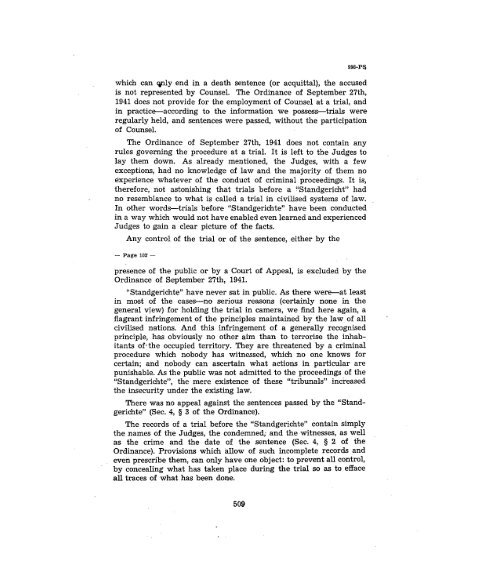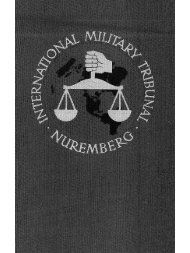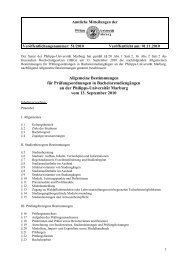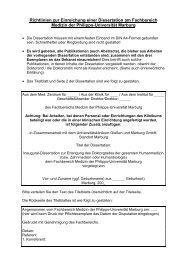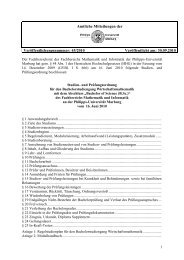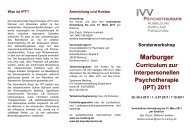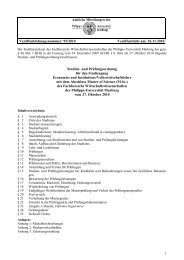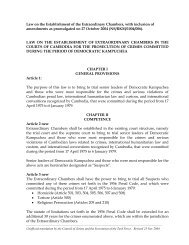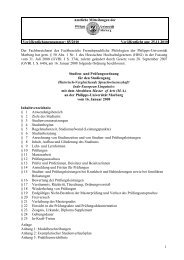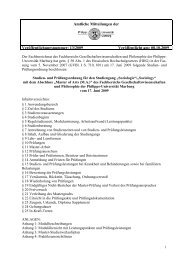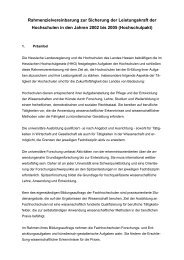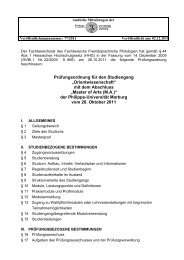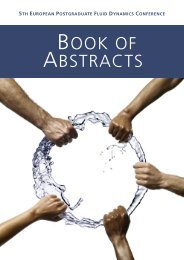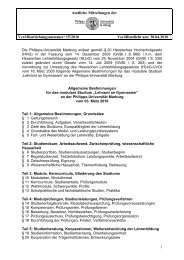- Seite 3 und 4:
TRIAL THE MAJOR WAR CRIMINALS BEFOR
- Seite 5 und 6:
VOLUME XXVl OFFICIAL TEXT ENGLISH E
- Seite 7 und 8:
EDITOR'S NOTE The shortage of print
- Seite 9 und 10:
FACSIM ILK OF OKIGlNA Id DOCUMENT (
- Seite 11 und 12:
DOCUMENT 405-PS LAW CONCERNING LABO
- Seite 13 und 14:
An den Fiihrer, Fernschreiben. Mit
- Seite 15 und 16:
DOCUMENT 407(VI)-PS LETTER FROM SAU
- Seite 17 und 18:
ingangbringung neuer fabriken und d
- Seite 19 und 20:
DOCUMENT 407(VIII)-PS TELEPRINT FRO
- Seite 21 und 22:
Fernschreiben: An den Fuhrer, Obers
- Seite 23 und 24:
., Es wurden erstmalig an neuen Aus
- Seite 25 und 26:
IV.) Eingabe der,,VereinigtenPolnis
- Seite 27 und 28:
Unter diesen Voraussetzungen konnte
- Seite 29 und 30:
Es konnte zunachst festgestellt wer
- Seite 31 und 32:
5.) die rigorosen Methoden bei der
- Seite 33 und 34:
durch die deutsche Herrschaft im We
- Seite 35 und 36:
Ich lege Wert darauf, an dieser Ste
- Seite 37 und 38:
den Bolschewismus bestehen nach den
- Seite 39 und 40:
- Seite 25 haupt dem nicht Landw
- Seite 41 und 42:
diesem Prozess der Zusammenschliess
- Seite 43 und 44:
mitten im Winter 1942/43 geschehen,
- Seite 45 und 46:
- Seite 36 fur Deutschland gunst
- Seite 47 und 48:
Ich bitte Sie, auch iiberzeugt zu s
- Seite 49 und 50:
4.) Der K r i e g s m a r i n e sin
- Seite 51 und 52:
I Geheime Kommadosachel) Der Fuhrer
- Seite 53 und 54:
11. Abschnitt: a) Verbande der Luft
- Seite 55 und 56:
Kriegsmarine: Herrichtung der in it
- Seite 57 und 58:
DOCUMENT 446-PS HITLER'S TOP-SECRET
- Seite 59 und 60:
In welcher Form die Streitkrafte be
- Seite 61 und 62:
- Seite 7 und bei fortschreitend
- Seite 63 und 64:
DOCUMENT 447-PS TOP-SECRET DIRECTIV
- Seite 65 und 66:
eine eigene p o li t is c h e Verwa
- Seite 67 und 68:
Dienststellen der Partei. OKWI WFSt
- Seite 69 und 70:
Weisung Nr. 22 Mithilfe deutscher K
- Seite 71 und 72:
WNV 10. ,, Ausl.lAbw. 11. ,, Wehrm.
- Seite 73 und 74:
1. die Leitung der Forschungs- und
- Seite 75 und 76:
Berufung in den Forschungsrat erfol
- Seite 77 und 78:
Haplings- Geburts- Lager 211-u. Vor
- Seite 79 und 80:
Haftlings- Geburts- - Lager ZZL-u.
- Seite 82:
Geburts- Tag Stunde Todesursache de
- Seite 85 und 86:
Geburts- 7% Stunde Todesursache des
- Seite 87 und 88:
495-PS Tag u. Stunde . Ort Todes I
- Seite 89 und 90:
Vorname Datum I - I I Johann 22. 12
- Seite 91 und 92:
Geburts- Eg u. Stunde Vorname des D
- Seite 93 und 94:
DOCUMENT 498-PS HITLER'S TOP-SECRET
- Seite 95 und 96:
- Seite 4 - Verteiler: O.K.H. / (2e
- Seite 97 und 98:
* 3, * - - Seite 2 - Als ich einige
- Seite 99 und 100:
2.) Wv. sofort bei I1 D 3 a (9) - S
- Seite 101 und 102:
V i e r t e s S: Tel'egramm-Formula
- Seite 103 und 104:
S e c h s t e s S: (Riidcseite von
- Seite 105 und 106:
- Seite 2 Die Komrnandos miissen
- Seite 107 und 108:
Aufgrund dieser Tatigkeitsberichte
- Seite 109 und 110:
Dieser Befehl ist . ::-:: nur fur d
- Seite 111 und 112:
- Seite 3 - Im gesamten Ostgebiet i
- Seite 113 und 114:
Ich erwarte deshalb, dass sowohl di
- Seite 115 und 116:
Geheime Kommandosache " WFst 1 Op (
- Seite 117 und 118:
laue Skianziige. Die Oberlebenden h
- Seite 119 und 120:
DOCUMENT 509-PS TOP-SECRET TELEGRAM
- Seite 121 und 122:
DOCUMENT 512-PS TOP-SECRET TELEPRIN
- Seite 123 und 124:
Z w e i t e s S: Feruschreibstreife
- Seite 125 und 126:
A b s i c h t war Aufbau einer Orga
- Seite 127 und 128:
A) DIE IN DER NORMANDIE ERFOLGTEN E
- Seite 129 und 130:
B e z u g : Fiihrerbefehl vom 18.10
- Seite 131 und 132:
- Seite 2 Nach Abgang: die Priif
- Seite 133 und 134:
mussen. Lediglich in Zivil eingeset
- Seite 135 und 136:
(alles Kop) I vorletzte Zeile: ,,Qu
- Seite 137 und 138:
Nach Abgang: ::-:: Qu. (Verw. 1) zu
- Seite 139 und 140:
machtbericht bekanntgegeben werden,
- Seite 141 und 142:
Unveranderter Nachdruck 1943 Bezug:
- Seite 143 und 144:
DOCUMENT 556(2)-PS ORDER BY HITLER,
- Seite 145 und 146:
mein fuehrer ! ich bitte, mich zur
- Seite 147 und 148:
heil .' ihr gehorsamer und ,getreue
- Seite 149 und 150:
die ueberpruefung der franzoesische
- Seite 151 und 152:
DOCUMENT 556(43)-PS ' LETTER-TELEGR
- Seite 153 und 154:
Der Beivrcffragte fur den Viwalares
- Seite 155 und 156:
580-PS B e t r i f f t : Anwerbung
- Seite 157 und 158:
9.' Fiir den Anmarsch zum Sammelpun
- Seite 159 und 160:
615-PS Der Bischof von Limburg Limb
- Seite 161 und 162:
, DOCUMENT 621-PS SECRET LETTER FRO
- Seite 163 und 164:
Abschrif t Aus den Ausfiihrungen de
- Seite 165 und 166:
- Seite 2 etwa 8 m 2 Schiisse na
- Seite 167 und 168:
abgegeben.Inzwischen wurde im geric
- Seite 169 und 170:
D r i t t e s S: U und ,,29." im Da
- Seite 171 und 172:
F ii n f t e s S: Ds I Seite 1: o r
- Seite 173 und 174:
des rechten Warzenfortsatzes wagrec
- Seite 175 und 176:
30.) Einschnitte, in den Hautverfar
- Seite 177 und 178:
auch hier dunkles flussiges Blut vo
- Seite 179:
11. Es wurden festgestellt ausgedeh
- Seite 183 und 184:
W a c k e r 1 e ,Lagerkommandant, D
- Seite 185 und 186:
DOCUMENT 647-PS TOP-SECRET HITLER O
- Seite 187 und 188:
- Selte 3 ihrer Arbeitsdienstpfl
- Seite 189 und 190:
nach vorherigem Benehmen mite dem R
- Seite 191 und 192:
Der Reichsfiihrer-SS und Chef der ~
- Seite 193 und 194:
- Seite 11 111. Die Allgemeine S
- Seite 195 und 196:
nicht erstreckt, im allgemeinen auc
- Seite 197 und 198:
In GroBstadten ist die Durchfuhrung
- Seite 199 und 200:
Nationalsozialistische Deutsche Arb
- Seite 201 und 202:
das Recht, in Ermangelung anderer M
- Seite 203 und 204:
gegen einander abgrenzen, fliessen
- Seite 205 und 206:
Hektarertrage sind knapp halb so ho
- Seite 207 und 208:
dem Sudetengau entsprechend erhijhe
- Seite 209 und 210:
- Seite 11 oder Y n t e r w a n
- Seite 211 und 212:
Am erfolgreichsten haben jene Staat
- Seite 213 und 214:
P o 1 e n s Assimilationspolitik vo
- Seite 215 und 216:
nun folgen wden (meist echte Doppel
- Seite 217 und 218:
neller vom fremden Gesamt- volk abg
- Seite 219 und 220:
k) Vorenthaltung von Lehrerseminare
- Seite 221 und 222:
q) N a m en s a n a 1 y s en , d.h.
- Seite 223 und 224:
Sicherung des deutschen Lebensraume
- Seite 225 und 226:
ussischem Visum), kein Militar, kei
- Seite 227 und 228:
Stellung von landwirtschaftlichen u
- Seite 229 und 230:
Propagandistisch ist es auch wertvo
- Seite 231 und 232:
Das hatte zur Voraussetzung: eine u
- Seite 233 und 234:
Neusiedler durch polnische Agrarref
- Seite 235 und 236:
Bei allen H a r t e m a s s n a h m
- Seite 237 und 238:
Das Thema B o 1 s c h e w i s m u s
- Seite 239 und 240:
~Oberkommando der Wehrmacht l4 16.1
- Seite 241 und 242:
::-:: Es ist der lange erwogene Wil
- Seite 243 und 244:
IV. (1) Tater, die nach Deutschland
- Seite 245 und 246:
DOCUMENT 674-PS SECRET REPORT MADE
- Seite 247 und 248:
daR zwischen Abgabe der Sache an di
- Seite 249 und 250:
geringste militarische Ruckschlag k
- Seite 251 und 252:
Zur Erfullung der ihm in Absatz 1 N
- Seite 253 und 254:
WICHSMINISTER WALTHER FUNK BERLIN W
- Seite 255 und 256:
Vollzugsanltalt ortlich zustandige
- Seite 257 und 258:
VS-Tgb.Nr. 704143 geh. VI-Tgb.Nr. 2
- Seite 259 und 260:
.niederlanldischen Volkes proklamie
- Seite 261 und 262:
Hinsichtlich der Begriffsbestimmung
- Seite 263 und 264:
die Ziffern ,,l"und ,,3" und die Bu
- Seite 265 und 266:
- Seite 4 den ~egleitumstanden e
- Seite 267 und 268:
DOCUMENT 7294's TOP-SECRET LETTER F
- Seite 269 und 270:
Der Chef F.H.Qu., den 15.6.1944. de
- Seite 271 und 272:
Abgeschossene feindliche Flieger si
- Seite 273 und 274:
dieser Art stehen, bei ihrer Aufnah
- Seite 275 und 276:
B e t r.: Behandlung feindlicher Te
- Seite 277 und 278:
- Seite 2 3.) Der Befehl betr. F
- Seite 279 und 280:
DOCUMENT 744-PS SECRET LETTER FROM
- Seite 281 und 282:
Verteiler: Genstb. d. H. Generalbev
- Seite 283 und 284:
an: 1.) Geb.AOK 20 2.) nachr.: WB N
- Seite 285 und 286:
Reichsinnenministerium unertraglich
- Seite 287 und 288:
778-PS Diesen Bestimmungen unterlie
- Seite 289 und 290:
2.) wer Geldbetrage, die aus verbot
- Seite 291 und 292:
urn mindestens 4 Wochen. In Einzelh
- Seite 293 und 294:
offentlichem Recht zustehenden Ansp
- Seite 295 und 296:
DOCUMENT 783-PS LETTER FROM THE REI
- Seite 297 und 298:
784-PS Abschrif t. Der ~eichsminist
- Seite 299 und 300:
Dresden -A. 1, am 8.~gi 1935 Postsc
- Seite 301 und 302:
Ich bitte ergebenst um gefl.Stel1un
- Seite 303 und 304:
Die auftragsgemal3 vorgenommenen we
- Seite 305 und 306:
darin, daB er bei seiner Einlieferu
- Seite 307 und 308:
Haftlinge, auch die Invaliden, daru
- Seite 309 und 310:
3.- Heinz Meier: Urteil: 3 Jahre Ge
- Seite 311 und 312:
11. Karge: Urteil: 1 Jahr 8 Monate
- Seite 313 und 314:
20. ,Schmeling: Urteil: 1 Jahr Gefa
- Seite 315 und 316:
Berichts- Name Nr. Urteil Bisher be
- Seite 317 und 318:
eine Begnadigung nicht am Platze se
- Seite 319 und 320:
Aufnahmezimmer eingerichtet worden.
- Seite 321 und 322:
allen Beteiligten aufgefa5t werden.
- Seite 323 und 324:
eherrscht, und Ihnen meine Entschlu
- Seite 325 und 326:
Gummi, Erdschatze ' usw. Nach dem W
- Seite 327 und 328:
durch Amerika ist noch unwesentlich
- Seite 329 und 330:
Wir haben eine Luftwaffe, die es fe
- Seite 331 und 332:
Ich bitte Sie, den entschlossenen G
- Seite 333 und 334:
in die Tschechei Blut geflossen war
- Seite 335 und 336:
798-PS 7* Bei uns ist das Fassen vo
- Seite 337 und 338:
Steigerung der Rustung. Wie ist die
- Seite 339 und 340:
Die heutige Veroffentlichung des Ni
- Seite 341 und 342:
- Seite 3 er auf dem Herzen hat.
- Seite 343 und 344:
diese oder jene Person mehr oder we
- Seite 345 und 346:
allen Gauen anerkannt, da inzwische
- Seite 347 und 348:
Das Abkommen vom 11.Juli 1936 war b
- Seite 349 und 350:
des freien Bekenntnisses zur nation
- Seite 351 und 352:
und wurden von Seyss am 10. nachmit
- Seite 353 und 354:
zu ernennen, Appell an die Weltoffe
- Seite 355 und 356:
DOCUMENT 835-PS SECRET LETTER FROM
- Seite 357 und 358:
Nationalsozialistische Deutsche Arb
- Seite 359 und 360:
die ihnen von der NSDAP. gestellten
- Seite 361 und 362:
Der Reichsschatzmeister der NSDAP.
- Seite 363 und 364:
PARTEI BESTELLTEN VERANTWORTLICHEN
- Seite 365 und 366:
Der Reichsminister Berlin W 8, den
- Seite 367 und 368:
Verbleiben des Bischofs veranstalte
- Seite 369 und 370:
freiwilliger Akt ware, mi.thin eine
- Seite 371 und 372:
Der Reichsprotektor hat zu den vers
- Seite 373 und 374:
BESCHPEIBUNG: dreiteilig E r s t e
- Seite 375 und 376:
1. Die Verantwortlichkeit des Oberb
- Seite 377 und 378:
864-PS D r i t t e s S: alles Blei
- Seite 379 und 380:
Reichsleiter Rosenberg steht zur Er
- Seite 381 und 382:
8 zu seinem Beauftragten fur die ze
- Seite 383 und 384:
11. GegenmaBnahmen: l.).Meine alte
- Seite 385 und 386:
Sicherheitspolizei mit all ihren Mo
- Seite 387 und 388:
Geheime Kommandosache W F St. den 3
- Seite 389 und 390:
- Seite 3 - ' F u h r e r : weist d
- Seite 391 und 392:
Osten klar erkennbar.Hochstleistung
- Seite 393 und 394:
0b. d. H. Vorschlag einheitliches K
- Seite 395 und 396:
2.) Starkeverhaltnis iin Fall Barba
- Seite 397 und 398:
Oberkomrnando des Heeres Hauptquart
- Seite 399 und 400:
Hierbei ist festzuhalten, daD aul3e
- Seite 401 und 402:
auszuniitzen. Die Regiments- usw. K
- Seite 403 und 404:
der Truppe kaum zumuten konnen, die
- Seite 405 und 406:
nachsten Jahre sowie uber die gepla
- Seite 407 und 408:
DOCUMENT 997-PS SECRET LETTER FROM
- Seite 409 und 410:
Belagerungszustand aber dariiber hi
- Seite 411 und 412:
, ihrer Betatigung durch den Belage
- Seite 413 und 414:
in einer offentlichen Erklarung zug
- Seite 415 und 416:
Vermogens sowie uber die Einziehung
- Seite 417 und 418:
Verwaltung im allgemeinen nicht kla
- Seite 419 und 420:
Presseleben sofort erschlagen hatte
- Seite 421 und 422:
hat ihre Hauptstutze in den freien
- Seite 423 und 424:
In diesem Zusammenhang sol1 auch no
- Seite 425 und 426:
GENERAL SUMMARY. PAGE A. INTRODUCTI
- Seite 427 und 428:
By letter of August 18th, 1945 to t
- Seite 429 und 430:
Treaties of Czechoslovakia with Fra
- Seite 431 und 432:
In permanent contact with the Natio
- Seite 433 und 434:
- Page 12 stampeded into the Hen
- Seite 435 und 436:
(b) Espionage. Military espionage w
- Seite 437 und 438:
meeting of CHAMBERLAIN and HITLER i
- Seite 439 und 440:
gave solenin assurances of their pe
- Seite 441 und 442:
assurances to me and I was authoris
- Seite 443 und 444:
- Page 26 (Blank) - Page 27 C
- Seite 445 und 446:
neutrality and independence, will b
- Seite 447 und 448:
discussed, but I remember exactly t
- Seite 449 und 450:
wrote in my final report, the Germa
- Seite 451 und 452:
C o m m u n e s (Table 2 and Diagra
- Seite 453 und 454: that the Representatives of the Gre
- Seite 455 und 456: frontiers and adequate economic ass
- Seite 457 und 458: - Page 45 ' V. Terrorism. 1. Pol
- Seite 459 und 460: fleeing from the ceded areas, were
- Seite 461 und 462: - Page 51 councils. In some Czec
- Seite 463 und 464: (2) Students' Massacres. (a) The Fu
- Seite 465 und 466: (bb) Suppression of Scientific Life
- Seite 467 und 468: Prague, among them Bilek's "Moses"
- Seite 469 und 470: On October 8th, 1941, the Sokol org
- Seite 471 und 472: Among the murdered Czech ministers
- Seite 473 und 474: had just been completed were deflec
- Seite 475 und 476: considered to be Jewish. Thus non-J
- Seite 477 und 478: - Page 69 interest of the German
- Seite 479 und 480: (a) 1939-1941. (4) Forced Labour. A
- Seite 481 und 482: also Liable to work "on other Reich
- Seite 483 und 484: In the other areas of the Republic,
- Seite 485 und 486: Typical of the methods of the Nazi
- Seite 487 und 488: Immediately superior to the Staatsp
- Seite 489 und 490: The experiences of Czechoslovak nat
- Seite 491 und 492: Imprisonment under appalling sanita
- Seite 493 und 494: - Page 88 When the Buchenwald co
- Seite 495 und 496: to belligerents occupying enemy ter
- Seite 497 und 498: To quote a few instances only: Acco
- Seite 499 und 500: - sound popular feeling" asks that
- Seite 501 und 502: espionage apparatus. On September 2
- Seite 503: 998-PS The procedure of the "Standg
- Seite 507 und 508: Protector DALUEGE on July 3rd, 1942
- Seite 509 und 510: assisted the "assassins" even those
- Seite 511 und 512: Wartheland). So far no trace of the
- Seite 513 und 514: gime was capable of every brutality
- Seite 515 und 516: applicable to the Protectorate" and
- Seite 517 und 518: The decision of Committee I was con
- Seite 519 und 520: Schnelligkeit der Entscheidung notw
- Seite 521 und 522: esetzten franzosischen Gebieten in
- Seite 523 und 524: 583 Plastiken, Terrakotten, Medaill
- Seite 525 und 526: Kunst eine umfangreiche Materialsam
- Seite 527 und 528: DOCUMENT 1015(d)-~~ LAMMERS' MEMORA
- Seite 529 und 530: arbeiten nach verschiedenen Gesicht
- Seite 531 und 532: BESCHREIBUNG: Phot Fuhrererlass Jud
- Seite 533 und 534: N.Z. ...", ,,10229", ,,Frl. Scholz"
- Seite 535 und 536: *'2.) Die Sonderkommandos des Reich
- Seite 537 und 538: *I ::-:: Insbesondere in den besetz
- Seite 539 und 540: 1015q-PS Durchfiihrung aller Massna
- Seite 541 und 542: Gebieten von den Abteilungen Kunst,
- Seite 543 und 544: Zusammenbruch der UdSSR. folgt. Die
- Seite 545 und 546: Judentum ausgebeuteter als polen. T
- Seite 547 und 548: - Seite 7 zwischen dem Grossen u
- Seite 549 und 550: \ a) verbindliche politische Anweis
- Seite 551 und 552: - Seite 4 - Zu besetzen sind ferner
- Seite 553 und 554: - Seite 12 zu achten, daB samtli
- Seite 555 und 556:
- Seite 20 damit ein aufierorden
- Seite 557 und 558:
Vielmehr besteht die Hauptaufgabe d
- Seite 559 und 560:
- Seite 11 - Rechtsabteilung. Als A
- Seite 561 und 562:
- Seite 17 - Beim Stellvertreter de
- Seite 563 und 564:
- Seite 3 - Ukrainer zu fordern. Wi
- Seite 565 und 566:
- Seite 8 durch die Hilfe bei de
- Seite 567 und 568:
8 31)Das in Jahrzehnten und Jahrhun
- Seite 569 und 570:
Geschichte hat die dort lebenden Vo
- Seite 571 und 572:
geschlossen werden, der den kommend
- Seite 573 und 574:
- Seite 5 werden und Kaukasien m
- Seite 575 und 576:
und politischer Zielsetzung, kurz,
- Seite 577 und 578:
3.) Der Bedarf an Noten konne auch
- Seite 579 und 580:
Auf Grund yon Erkundungen sei er zu
- Seite 581 und 582:
In weiteren Unterhandlungen haben w
- Seite 583 und 584:
- Seite 8 - Ein Gebietskommissariat
- Seite 585 und 586:
GroDere Werke sind fur kommende ver
- Seite 587 und 588:
So hoffe ich, da13, wenn nach vorla
- Seite 589 und 590:
Der Reichskommissar leitet und beau
- Seite 591 und 592:
2. Generalkommissare. *I Der G e n
- Seite 593 und 594:
des Hauptkommissars ist politisch v
- Seite 595 und 596:
und Wirtschaftskommandos werden nac
- Seite 597 und 598:
- Seite 12 - Alle eingehenden Schri
- Seite 599 und 600:
der Reihe dieser Vertrauenslwte kon
- Seite 601 und 602:
Die Frage, ob auch im Verhaltnis vo
- Seite 603 und 604:
ist, diesen Plan in Teilhaushaltspl
- Seite 605 und 606:
DOCUMENT 1058-PS ROSENBERG'S SPEECH
- Seite 607 und 608:
Verhalten der Kommissare bei der Um
- Seite 609 und 610:
Urspriinglich war die russische Ges
- Seite 611 und 612:
dem Petersburger historischen Musiu
- Seite 613 und 614:
im Baltenland sind n i e russisch g
- Seite 615 und 616:
ausgehen muss, moglichst vie1 aus d
- Seite 617 und 618:
isher uberhaupt nicht. Unser Kampf
- Seite 619 und 620:
haben ungefahr festgestellt, wie di
- Seite 621 und 622:
Wichtig ist dam das t a k t i s c h
- Seite 623 und 624:
DOCUMENT 1061-PS REPORT: "THE WARSA
- Seite 625 und 626:
Wachmann Andrej Prottschenko, geb.l
- Seite 627 und 628:
1061-PS 4%-Rttf. Josef Posch, .geb.
- Seite 629 und 630:
judischen Wohnbezirks im Interesse
- Seite 631 und 632:
Laufe des 20. und 21. April den gro
- Seite 633 und 634:
Warschau zu entkornmen. Laufend tra
- Seite 635 und 636:
teilweise in Flammen standen. Oft w
- Seite 637 und 638:
Wohnbezirks immer nnoch vereinzelte
- Seite 639 und 640:
1061-PS - Rtickseite - Wehrmacht 1
- Seite 641 und 642:
V e r 1 u s t e : 2 Tote (Wehrmacht
- Seite 643 und 644:
Festgestellt wurden erstmalig Angeh
- Seite 645 und 646:
kaum zu fassen ist, weil die Unterw
- Seite 647 und 648:
Verlauf der Ghettoaktion am 23.4.43
- Seite 649 und 650:
&I den Hoheren ff- und Polizeifiihr
- Seite 651 und 652:
An den Hoheren ff- und Polizeifuhre
- Seite 653 und 654:
1.) Die Aktion.am 25.4.43 wurde urn
- Seite 655 und 656:
13 gesprengten Bunkern und durch Br
- Seite 657 und 658:
Terroristen ermittelt. Heute gelang
- Seite 659 und 660:
Ergebnis des heutigen Tages: 1 655
- Seite 661 und 662:
Insgesamt erfaDt bzw. vernichtet: 3
- Seite 663 und 664:
1061-PS Fernschreiben Abschrif t. A
- Seite 665 und 666:
Fernschreiben -Abschrif t. Absender
- Seite 667 und 668:
Fernschreiben Absender Der SSund Po
- Seite 669 und 670:
Bunkern und erschol3 188 Juden im K
- Seite 671 und 672:
von Verrat und durch den Spiirsinn
- Seite 673 und 674:
Eigene Krafte: E i n s a t z k r a
- Seite 675 und 676:
Verlauf der Aktion am 8.5.43, 10.00
- Seite 677 und 678:
Von den angesetzten Durchkammungsst
- Seite 679 und 680:
Auf Grund des guten Einvernehmens m
- Seite 681 und 682:
Abschrift. Fernschreiben Absender:
- Seite 683 und 684:
gefangenen Juden und Banditen den s
- Seite 685 und 686:
das Feuer erwidert. Bei den Zusamme
- Seite 687 und 688:
7 Juden erschossen werden. Die heut
- Seite 689:
S e c h s t e s S: Bildbeilagen THE
- Seite 708 und 709:
der Gefahrdung fur den Staat Rechnu
- Seite 710 und 711:
S t u f e I a : Fiir alle alten und
- Seite 712 und 713:
allgemeine Aufsicht der ubergeordne
- Seite 714 und 715:
Um diese Zahl zu erreichen, ist fol
- Seite 716 und 717:
D r i t t e s S: 1 n Richtigkeits-V


